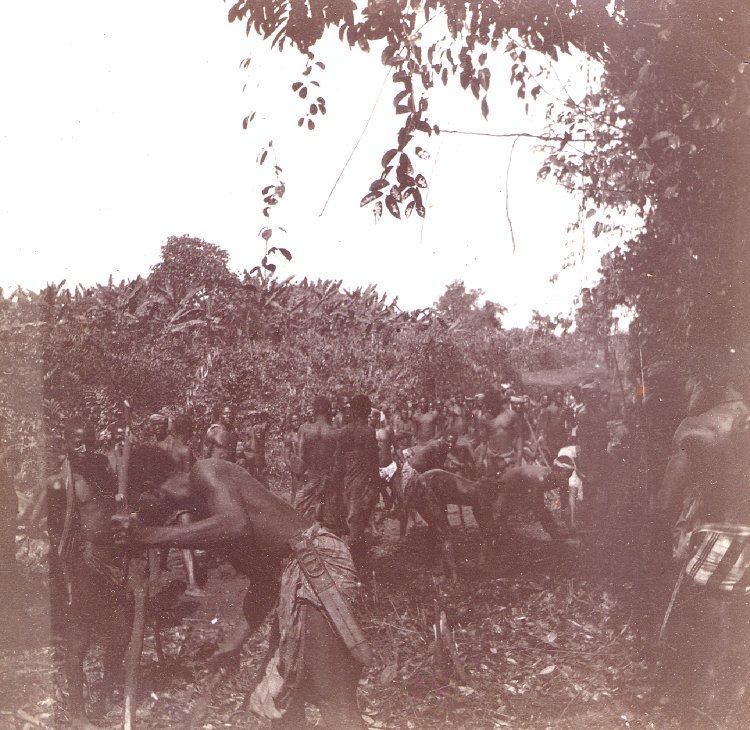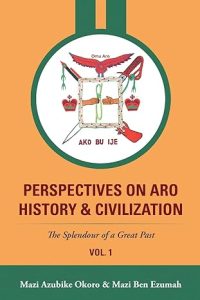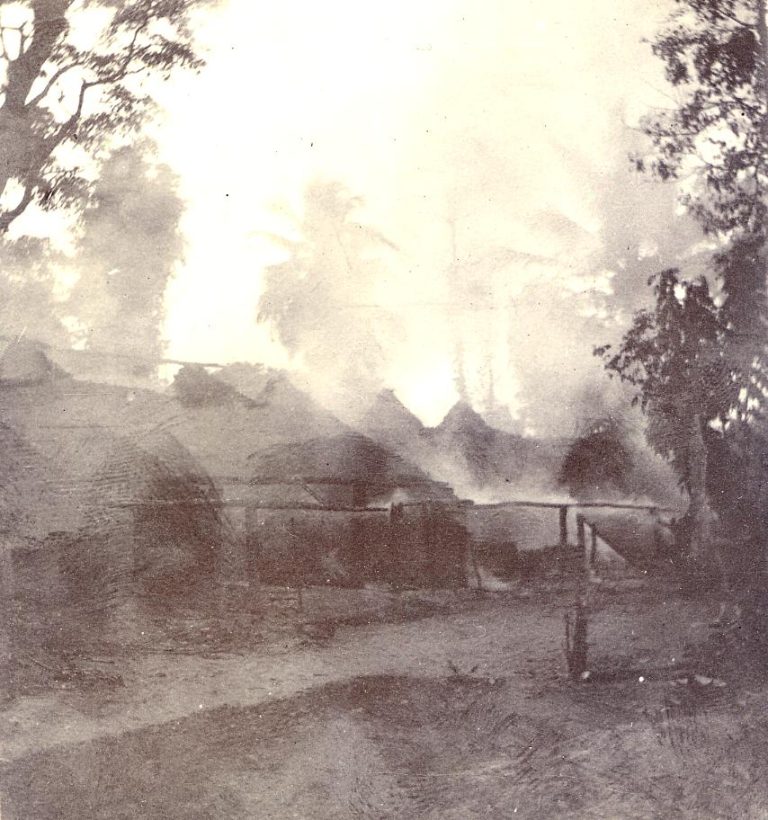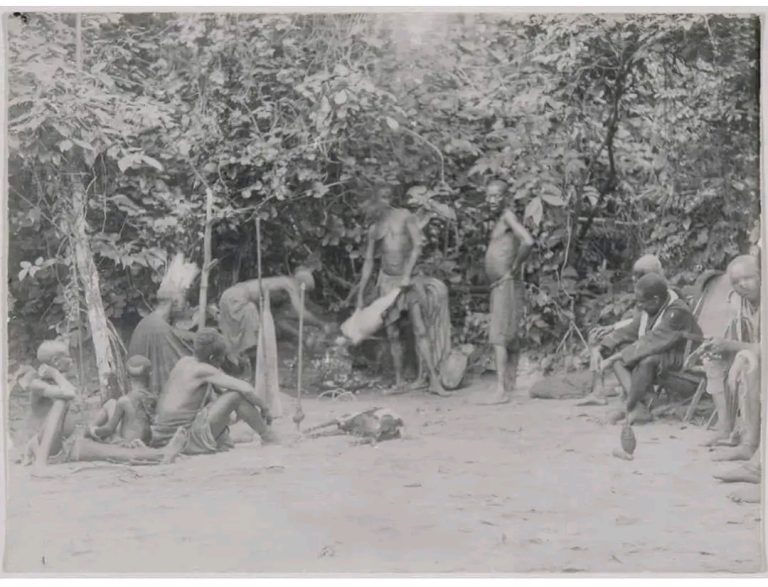
This sepia-toned gelatin silver print, taken in 1901 near Bende, Abia State, Nigeria, shows a large group of Aro men clearing vegetation to make a road. The men, wearing loin-cloths, are using tools to cut through the dense forest. This image captures a moment of forced labor imposed by the British during the Aro Punitive Expedition, highlighting the harsh conditions and the significant impact of colonial rule on the local population.
The Aro Confederacy and the Anglo-Aro War
The Anglo-Aro War, also referred to as the Aro Punitive Expedition (1901–1902), was a pivotal conflict in southeastern Nigeria. At the time, the Aro Confederacy was a significant socio-political and economic entity in Igbo society, known for its far-reaching trade networks and its influence over southeastern Nigeria through the Aro Oracle, known as “Ibini Ukpabi.” The British saw this influence as an obstacle to colonial expansion and sought to dismantle it.
This photograph captures a moment during the British campaign against the Aro Confederacy. The clearing of roads was a vital part of the punitive expedition, as it allowed colonial troops to penetrate the dense forests and enforce British authority. These forced labor practices underline the broader exploitation and disruption faced by the Aro people during the colonial era.
The Aro natives depicted in the photograph were likely coerced into this backbreaking work. Such forced labor was a common tool of colonial oppression, with devastating effects on local populations. It not only stripped communities of their autonomy but also disrupted their daily lives and economies. The laborers’ attire and tools in the image underscore the simplicity of their resources compared to the organized military force they were up against.
Legacy of the Anglo-Aro War
The Anglo-Aro War marked the end of the Aro Confederacy’s dominance and the establishment of direct British colonial rule in the region. The war’s aftermath brought about profound changes, including the decline of indigenous governance structures, the introduction of Western-style administration, and the loss of cultural autonomy.
However, the resilience of the Aro people and their culture remains evident today. From oral histories to annual cultural celebrations, the Aro community continues to honor its rich heritage despite the scars of colonial intervention.
Explore Further
For more insights into the history and impact of the Anglo-Aro War, consider these recommended readings:
 Recommended Books
Recommended BooksAuthor Profile Mazi Azubike Okoro is a prominent figure in the Aro community, with a rich academic background in sociology and human resource management. He holds two master’s degrees and a Doctorate of Management from Argosy University, Chicago, USA. As a native of Amuvi, Arochukwu, he founded Aro News in 1997 to promote research on the culture, […]
 Recommended Books
Recommended BooksOverview Arochukwu: A Patriarch’s Reflections is a collection of essays and books by the late George Moses Onwuchekwa. He was a barrister, historian, and expert on the customs and traditions of Arochukwu. Edited by Joseph Amaeze, this work provides an intimate look into the cultural and historical fabric of the Arochukwu people. It blends personal […]
These works provide invaluable context for understanding the challenges faced by the Aro people during and after the war, as well as the enduring strength of their cultural identity.
Discover more from Igbo Archives
Subscribe to get the latest posts sent to your email.




You sabi sha, most of us don’t know anything that happened then.
I go like know more seriously